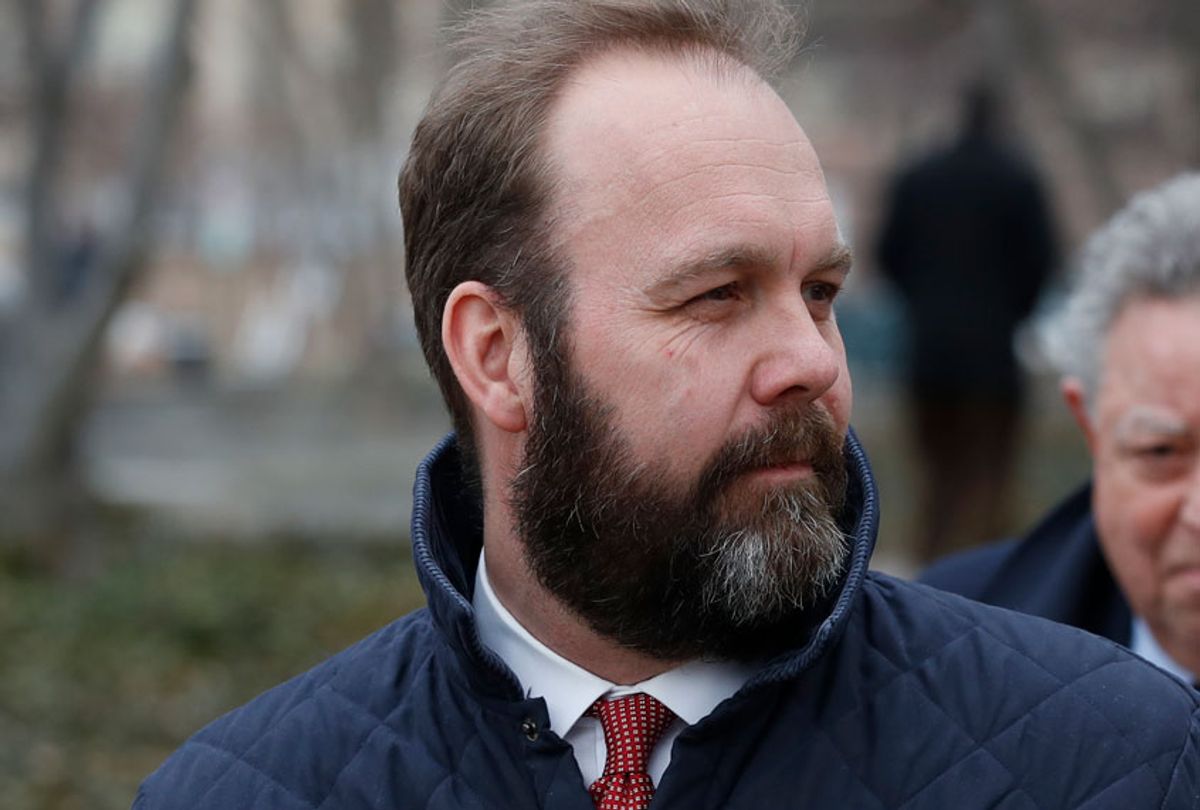The House Intelligence Committee has issued subpoenas for former national security adviser Michael Flynn and former Trump campaign deputy chairman Rick Gates as part of the panel's investigation into Russian interference in the 2016 election.
Committee Chairman Adam Schiff said the two men "have refused to fully cooperate with Congress."
"That's simply unacceptable. The American people and the Congress deserve to hear directly from these two critical witnesses," the California Democrat said in a statement Thursday.
The subpoenas demand that Flynn and Gates turn over documents to the committee by June 26 and appear before the panel for sworn testimony on July 10.
Schiff noted that both Flynn and Gates cooperated extensively with former special counsel Robert Mueller's investigation into Russian interference in the 2016 election, alleged ties between the Trump campaign and Moscow and whether the president obstructed justice.
Flynn and Gates are both still cooperating with prosecutors on various criminal matters and have yet to be sentenced. They both pleaded guilty to crimes linked to Mueller's probe.
Flynn, a former U.S. Army lieutenant general, pleaded guilty in December 2017 to a single count of making false statements to the FBI about his communications with then-Russian Ambassador Sergey Kislyak before Trump took office.
The former special counsel revealed that Flynn had provided investigators with "substantial assistance" in more than a dozen interviews throughout his nearly two-year investigation and argued that Flynn should receive little to no jail time.
Gates, a longtime associate of former Trump campaign chairman Paul Manafort, pleaded guilty to lying to investigators in February 2018 and agreed to cooperate with prosecutors. His testimony revealed that Manafort had shared internal polling data with a business associate who the FBI determined had links to Russian intelligence.
Although Flynn is awaiting sentencing, he recently fired his legal team and hired Sidney Powell, a firebrand lawyer who has been a fierce critic of Mueller's investigation. Powell previously urged Flynn to withdraw his guilty plea to a charge filed by the former special counsel. Trump on Thursday praised the news of Powell's hiring.
"General Michael Flynn, the 33 year war hero who has served with distinction, has not retained a good lawyer, he has retained a GREAT LAWYER, Sidney Powell. Best Wishes and Good Luck to them both!" Trump tweeted.
In his letter to Flynn, Schiff pointed out that the judge in his case, Emmet Sullivan, had urged Flynn to fully cooperate with the government. Schiff suggested that cooperating with his panel's investigation could help convince Sullivan that he had taken the judge's recommendation seriously.
Schiff similarly wrote to Gates that he was "disappointed" that the former Trump deputy campaign chairman did not view his "cooperation more broadly as an obligation to assist the United States of America and not merely the Department of Justice."
Schiff said Wednesday that he might soon issue a subpoena to FBI Director Christopher Wray to learn about the bureau's ongoing counterintelligence investigation into links between Trump's campaign and Moscow, which was launched in June 2016.
"We are determined to get answers, and we are running out of patience. If necessary, we'll subpoena the director and require him to come in and provide those answers under oath," Schiff said after his committee held a hearing on the counterintelligence portion of Mueller's report.
Mueller said there was insufficient evidence to show a criminal conspiracy between the Trump campaign and Russia and declined to reach a conclusion on whether the president committed obstruction, despite detailing at least ten episodes of possible obstruction in his report. Mueller said last month he could not charge Trump with a crime due to a longstanding Justice Department policy which prevents a sitting executive from being indicted.
"We did not make a determination as to whether the president did commit a crime," Mueller said in his first public remarks since he completed his investigation in March, citing the Justice Department's policy that a president "cannot be charged with a federal crime while he is in office. That is unconstitutional. Even if the charge is kept under seal and hidden from public view, that too is prohibited.”
"If we had confidence that the president clearly did not commit a crime, we would have said so," Mueller said.

Shares